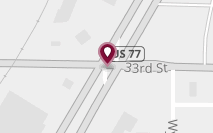Whether you are purchasing or selling a house or a piece of commercial property, you need a contract that outlines the rights and responsibilities of the buyer and the seller. This contract identifies all pertinent information and agreements between you and the other party.
Before you begin negotiating the fine print of your buy sell agreement, it may help to know what you can expect to find in nearly all such contracts. Understanding how they progress could help you determine what points you need to focus on during your negotiations.
The introductory paragraphs
You will more than likely see several clauses that begin with “Whereas” as you begin your review of the contract. These clauses introduce the parties and provide basic information about the history of the relationship between you and the other party. These clauses should not contain any provisions that impose an obligation on either party.
Specifying the property subject to the agreement
This section of the agreement outlines the exact nature of the property. You should find a legal description of the real estate in this section. If not, include a proviso that requires its inclusion after the completion of a survey. If any personal property goes along with the real estate, this section should describe it with as much specificity as possible. Any other rights sold along with the property, such as mineral rights, leases and other items, need describing in this section as well.
Specifying documents that transfer the property
This section of the contract outlines the documents needed in order to complete the transfer of property, such as the following:
- Depending on the type of sale, the transfer of property could require one of the following deeds:
- Quitclaim deed
- Limited warranty deed
- General warranty deed
- Fiduciary deed
- If the buyer receives any leases, licenses or other interests in the property, the seller must execute assignments of those interests to the buyer.
- If the seller conveys any personal property to the buyer, bills of sale must accompany it.
The specific documents related to your particular transactions may vary.
Specifying the money that changes hands
This section outlines monetary considerations, such as deposits, the purchase price and any adjustments to that price, that could occur at closing. The purchase price can be broken down into sections covering the price of the property, the price of any interests and the price of any personal property for tax purposes and clarity.
Particulars can be included, such as who holds deposits and what happens to them at closing or if the transaction isn’t completed for some reason.
Specifying any contingencies from the buyer
A real estate transaction is far from complete when you sign a buy sell agreement. The buyer will need to go through numerous other steps and receive certain assurances prior to the closing. For instance, surveys and inspections, financing considerations, and documentation reviews are just part of the additional tasks that require completion prior to closing the deal.
The rest of the story
The agreement will probably include other default provisions as well. These require review in order to ensure that each party’s rights remain intact.
As you can see, reviewing buy sell agreements for accuracy alone requires some experience. It may be beneficial to have an Oklahoma real estate attorney available to go through the agreement with you and advocate for you during negotiations to help ensure that the transaction proceeds smoothly to a satisfactory conclusion.
